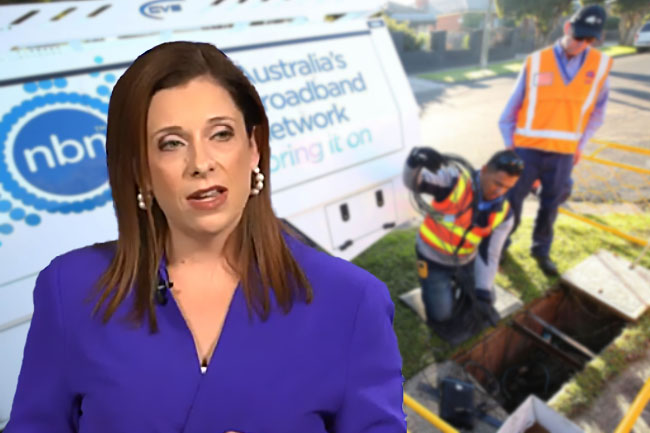The Morrison Government's procrastination on technology is costing jobs, stifling innovation and stopping investment, as the massive cost of climate change disasters has already shown, writes Paul Budde.
IT WAS interesting to hear Prime Minister Scott Morrison advocating the use of technology in order to address climate change.
Being aware of what technology can do, I am, of course, all in favour of using technology for that purpose.
However, this Government’s track record is woeful when it comes to technology as it has:
- developed arguably one of the worst broadband systems in the developed world;
- abandoned the smart grid and smart energy policies that were initiated around 2010;
- consistently decreased research and development investments;
- never implemented anything from its much-heralded "innovation" policy;
- instigated a ban on Huawei, showing its ignorance on how interconnected global networks work; and
- not applied enough consideration to its cybersecurity policies.
Perhaps the single most important element that is missing in all of this is that the Morrison Government keeps coming up with all sorts of ill-considered policies and strategies, without any long-term vision attached. There is currently no national policy on any of the above issues. Politicians go from one fire to another, but every single time they fail to step back and look at the core issue and develop a long-term vision followed up with sound strategies.
I was involved in the NBN as a strategic advisor to the minister between 2005 and 2013. I was asked to assist was because I highlighted the social and economic benefits of a national broadband network for healthcare, education, smart energy, smart cities and so on. I argued that what the Federal Government should do in relation to technology was to indicate what they expect such infrastructure to do for the country, set a budget and then ask the industry to develop the right technologies for it.
But what happened after 2013 was that the incoming Coalition Government started to micromanage the technology. They totally lost the plot of what the NBN was expected to deliver and why we needed it for our society and economy.
John Hanna the CEO of New Zealand's Ultrafast Fibre said on CommsDay (19 February) Australia's multi-technology mix model has by contrast [to the New Zealand NBN] been:
“... a disaster"...“They will never recover from that. It will set them back by decades.”'
Basically, this is the same for many of the other non-policies. While other countries are steaming ahead Australia is left behind.
In 2002, I initiated what would later become Smart Grid Australia. In this initiative, all the electricity companies worked together to use technology to create better energy infrastructure. Independent research indicated that it would save costs and at the same time, reduce carbon output by 30-40 per cent. Again, the incoming Government in 2013 abandoned the smart grid policy and we still don’t have a national smart energy plan.
While progress in renewable energy has increased over the last 12 months, it is more despite the Government rather than from any vision or action from them.
If we look at cybersecurity, this policy was again made on the run and pushed through Parliament within days. There was very little consideration for the long-term consequences of such a policy in relation to industry, innovation, privacy and so on. The Huawei policy fits in the same category.
Since 2013, this Government has refused to do anything serious about climate change and several Coalition politicians are open climate deniers. There is no policy, no national vision, nothing. It is obvious that the Government's stand on climate change is becoming untenable for many voters and that this will affect its chances for re-election, so the technology rabbit has been pulled out of the hat as the solution.
Is there a vision on climate change attached to that call for technology solutions? Has the Government indicated what it envisages the role of technology should be? What exactly is the aim and is there any policy behind it at all?
This Government drums up fear and uncertainty regarding the social and economic impacts of climate change action, but it has so far failed to come up with any details of this looming disaster. Of course, there will be an economic impact but the question should be how are we going to handle that?
Rather than concentrating on fear-mongering, why not promote the new opportunities that such a transition delivers? Germany is leading the energy transformation in Europe and not one single job has been lost as they developed a plan to ensure that people stayed employed. The Netherlands has a 100-year plan and has set $100 billion aside to address the long-term impact of climate change. None of this is high-level science. It just means good policies based on a national vision and supported by sound strategies.
It is a sad story as our country has top scientists, top engineers and top business people who could assist the Government to develop good strategies and use technology to maximise the impact and output.
However, without good policies, everybody is stabbing in the dark as nobody knows in what direction the Government is taking. This procrastination is costing jobs, stifling innovation and stopping investment. Just look at the massive cost of the climate change disasters that the country has faced over the last few months.
Doing nothing is going to cost more than coming up with sound solutions on how we as a country need to move forward with the reality of climate change on our doorstep.
We should be looking at the opportunities rather than continuing to spread fear and uncertainty.
Paul Budde is an Independent Australia columnist and managing director of Paul Budde Consulting, an independent telecommunications research and consultancy organisation. You can follow Paul on Twitter @PaulBudde.
 This work is licensed under a Creative Commons Attribution-NonCommercial-NoDerivs 3.0 Australia License
This work is licensed under a Creative Commons Attribution-NonCommercial-NoDerivs 3.0 Australia License
Support independent journalism Subscribe to IA.












